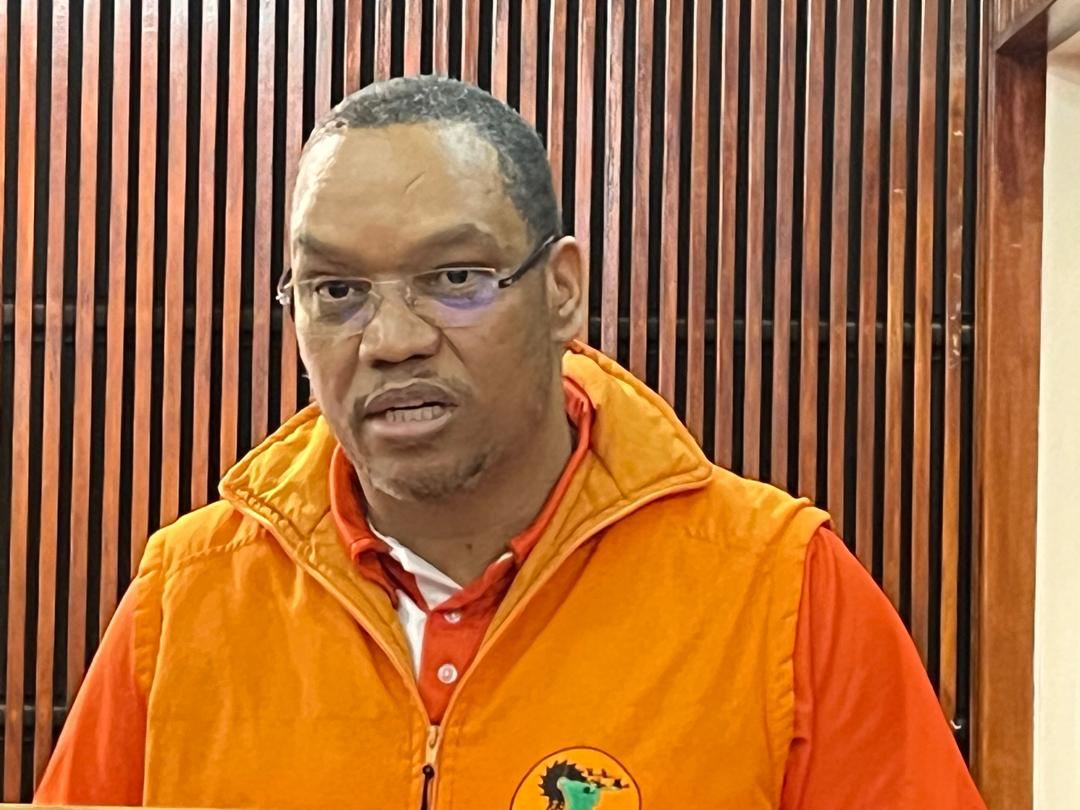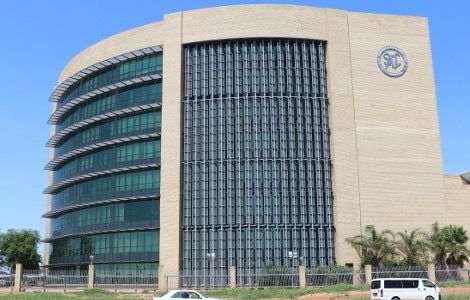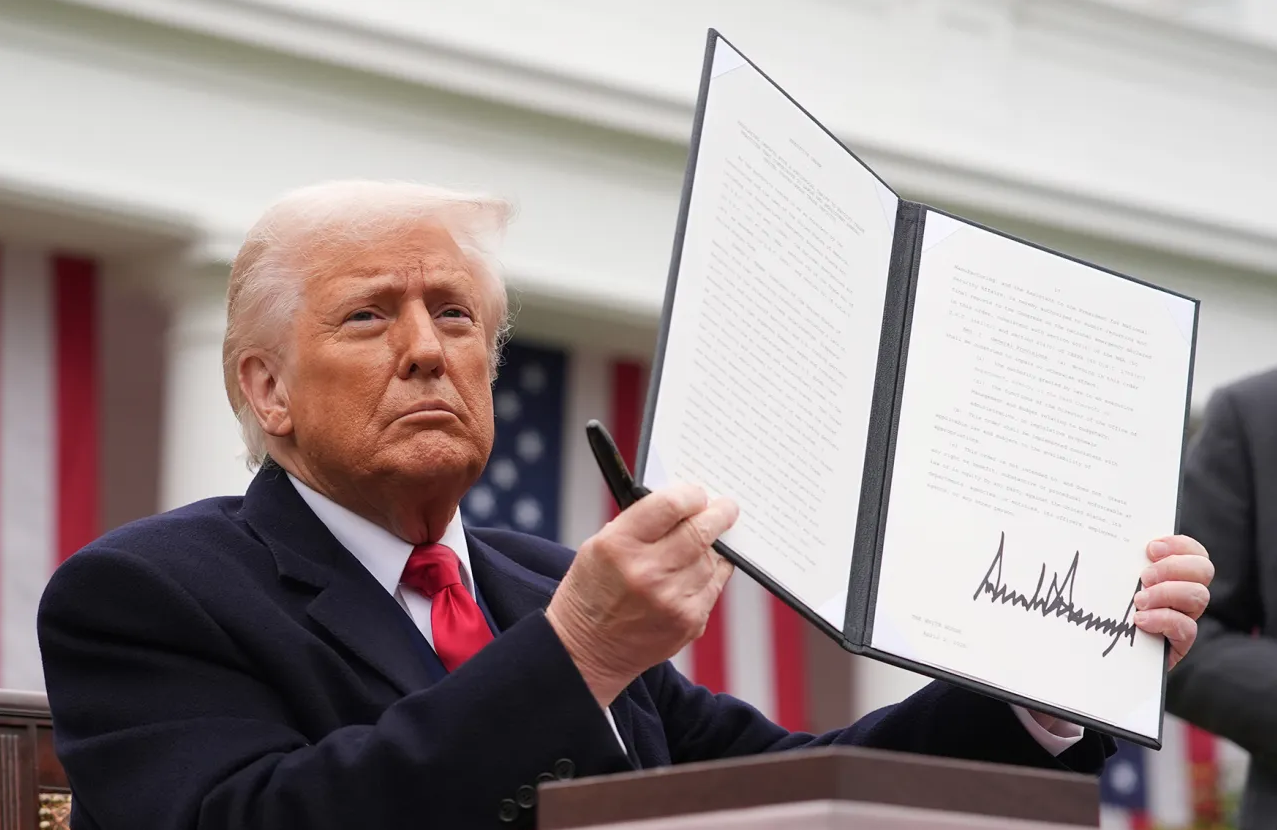VIENNA – Iran triggered a furious reaction from the West on Tuesday by announcing it had resumed sensitive nuclear research work after a two-year suspension, heightening the risk of being hauled before the UN Security Council for possible sanctions.
Tehran defied international calls to maintain the suspension as it announced that it removed seals of the Vienna-based International Atomic Energy Agency (IAEA) from its Natanz research facility in central Iran. IAEA director Mohamed ElBaradei confirmed the move and said that seals at two “related storage and testing locations” were due to be removed by yesterday.The UN nuclear watchdog’s chief also confirmed that Iran planned to use centrifuges to enrich uranium “on a small scale.”In Tehran, Mohammad Saidi, the deputy head of Iran’s Atomic Energy Agency, announced that “as of today these centres resume their activities.””The research will be carried out in all the centres that we told the IAEA about, and we will restart our work,” Saidi said.Western nations fear that Iran will use its civilian nuclear programme to build an atomic bomb, a charge that Tehran vehemently denies.Angry over Iran’s resumption of sensitive nuclear activities, the United States and European Union warned that the Islamic republic could be referred to the UN Security Council for possible sanctions.”We view this as a serious escalation on the part of Iran on the nuclear issue,” said US State Department spokesman Sean McCormack.”What you see here is the international community coming out and sending a very clear message to Iran that their behavior is unacceptable,” McCormack said.White House spokesman Scott McClellan said President George W.Bush had no plans to strike Iran, although the US leader “never takes options off the table.”McClellan said that “If the regime in Iran continues on the current course …there is no other choice but to refer the matter to the Security Council.”US officials also signaled mounting frustration with stalled European efforts to persuade Tehran to renounce its suspected nuclear arms ambitions.The United States has long pushed for UN action against Iran, but last March came out in support of efforts by Britain, Germany and France to negotiate a solution to the nuclear standoff.Iran had agreed to suspend uranium enrichment pending negotiations with the EU-3 on economic and other incentives to renounce any nuclear weapons ambitions.The European Union, which described Iran’s latest move as “serious and regrettable,” has been trying to reopen talks suspended in August after Iran rejected an initial set of incentives to abandon uranium enrichment, which produces fuel for nuclear power reactors but can also be used to make atomic bombs.In a statement, the EU said Iran had eroded “international confidence in the peaceful nature of its nuclear programme.”British Foreign Secretary Jack Straw called for a meeting with his French and German counterparts on Thursday and said referral of Iran to the UN Security Council would top the agenda.”Military action is not on our agenda, and I don’t believe it’s on anyone else’s agenda,” he said, pre-empting speculation that Israel or the United States might attempt a military strike.Iran insists that its nuclear programme is for peaceful purposes only, but many nations question that claim, and Straw argued that Middle East peace and stability, and global security, would be compromised by an Iranian bomb.”There was no good reason why Iran should have taken this step if its intentions are truly peaceful and it wanted to resolve longstanding international concerns,” Straw said.In Germany, Foreign Minister Frank-Walter Steinmeier warned that Tehran had “crossed a line where the Iranians knew that it would not remain without consequences.”French President Jacques Chirac said Iran – along with fellow nuclear suspect North Korea – “would be committing a serious mistake if they did not take the hand that we are holding out to them”.Russia, which has offered to conduct Iran’s enrichment work on its own soil as a confidence-building measure, voiced concern over Tehran’s decision to resume sensitive research.Iran has yet to take up Russia’s offer.”We call on Iran to return actively to a condition of moratorium and to full cooperation with the IAEA,” Russia’s foreign ministry said in a written statement.Negotiations on Russia’s offer are due to continue in February in Moscow, Russian Foreign Minister Sergei Lavrov said, adding that the idea had been “endorsed by all interested parties – Europe, the United States, China and other states.”In recent weeks, Iranian officials have blown hot and cold about the possible compromise, first suggesting that they might consider it and then insisting that they would do so only if any deal explicitly recognised its right to carry out enrichment on Iranian soil.- Nampa-AFPIAEA director Mohamed ElBaradei confirmed the move and said that seals at two “related storage and testing locations” were due to be removed by yesterday.The UN nuclear watchdog’s chief also confirmed that Iran planned to use centrifuges to enrich uranium “on a small scale.”In Tehran, Mohammad Saidi, the deputy head of Iran’s Atomic Energy Agency, announced that “as of today these centres resume their activities.””The research will be carried out in all the centres that we told the IAEA about, and we will restart our work,” Saidi said.Western nations fear that Iran will use its civilian nuclear programme to build an atomic bomb, a charge that Tehran vehemently denies.Angry over Iran’s resumption of sensitive nuclear activities, the United States and European Union warned that the Islamic republic could be referred to the UN Security Council for possible sanctions.”We view this as a serious escalation on the part of Iran on the nuclear issue,” said US State Department spokesman Sean McCormack.”What you see here is the international community coming out and sending a very clear message to Iran that their behavior is unacceptable,” McCormack said.White House spokesman Scott McClellan said President George W.Bush had no plans to strike Iran, although the US leader “never takes options off the table.”McClellan said that “If the regime in Iran continues on the current course …there is no other choice but to refer the matter to the Security Council.”US officials also signaled mounting frustration with stalled European efforts to persuade Tehran to renounce its suspected nuclear arms ambitions.The United States has long pushed for UN action against Iran, but last March came out in support of efforts by Britain, Germany and France to negotiate a solution to the nuclear standoff.Iran had agreed to suspend uranium enrichment pending negotiations with the EU-3 on economic and other incentives to renounce any nuclear weapons ambitions.The European Union, which described Iran’s latest move as “serious and regrettable,” has been trying to reopen talks suspended in August after Iran rejected an initial set of incentives to abandon uranium enrichment, which produces fuel for nuclear power reactors but can also be used to make atomic bombs.In a statement, the EU said Iran had eroded “international confidence in the peaceful nature of its nuclear programme.”British Foreign Secretary Jack Straw called for a meeting with his French and German counterparts on Thursday and said referral of Iran to the UN Security Council would top the agenda.”Military action is not on our agenda, and I don’t believe it’s on anyone else’s agenda,” he said, pre-empting speculation that Israel or the United States might attempt a military strike.Iran insists that its nuclear programme is for peaceful purposes only, but many nations question that claim, and Straw argued that Middle East peace and stability, and global security, would be compromised by an Iranian bomb.”There was no good reason why Iran should have taken this step if its intentions are truly peaceful and it wanted to resolve longstanding international concerns,” Straw said.In Germany, Foreign Minister Frank-Walter Steinmeier warned that Tehran had “crossed a line where the Iranians knew that it would
not remain without consequences.”French President Jacques Chirac said Iran – along with fellow nuclear suspect North Korea – “would be committing a serious mistake if they did not take the hand that we are holding out to them”.Russia, which has offered to conduct Iran’s enrichment work on its own soil as a confidence-building measure, voiced concern over Tehran’s decision to resume sensitive research.Iran has yet to take up Russia’s offer.”We call on Iran to return actively to a condition of moratorium and to full cooperation with the IAEA,” Russia’s foreign ministry said in a written statement.Negotiations on Russia’s offer are due to continue in February in Moscow, Russian Foreign Minister Sergei Lavrov said, adding that the idea had been “endorsed by all interested parties – Europe, the United States, China and other states.”In recent weeks, Iranian officials have blown hot and cold about the possible compromise, first suggesting that they might consider it and then insisting that they would do so only if any deal explicitly recognised its right to carry out enrichment on Iranian soil.- Nampa-AFP
Stay informed with The Namibian – your source for credible journalism. Get in-depth reporting and opinions for
only N$85 a month. Invest in journalism, invest in democracy –
Subscribe Now!










